- Home
- Rick Mofina
In Desperation Page 12
In Desperation Read online
Page 12
Prior to the meeting, one of the FBI’s Assistant Special Agents in charge of the Phoenix field office had pulled Hackett aside.
“A few minutes ago, the boss got a call from NHQ. The White House has let the Director know of its interest.” Hackett’s supervisor put his hand on Hackett’s shoulder. “Earl, you can appreciate that we all want this thing cleared ASAP, whatever it takes.”
Now Larson was concluding with a quick summary. To date, they’d received nearly two hundred tips from the public. All were being screened and sorted by Phoenix P.D. and the county, with potential leads flagged for the FBI. Cora’s home in Mesa Mirage was still being processed. Nothing significant had arisen from her computer, phone or bank records. The forensic experts were still analyzing items in the home for latent prints. There were impressions on the duct tape but the quality was subpar and they were still processing it. And crime scene people were still going through Lyle Galviera’s condo and his computer, phone, bank and credit card records.
As Larson finished her update, Hackett elaborated on the facts, suspicions and theories the FBI had gathered and formed from intelligence collected from all agencies and sources so far.
“Among his many longstanding financial troubles, Lyle Galviera had to make a critical two-million-dollar payment in one month or lose his company. So to save his company, he goes into business with Salazar and Johnson, who were tied to Mexican cartels.”
“What do we know about Salazar and Johnson?” a Mexican drug agent asked over the line from the Mexican Consulate in El Paso.
Hackett paused. He hated sharing intelligence.
“John Walker Johnson was ex-U.S. Customs. It was never proven, but it was alleged that in addition to stealing seized property while working the border at Juarez, he received a single three-hundred-thousand-dollar payment by a cartel to allow one truckload of dope to cross. He denied the allegation and resigned. The IRS said it lost the trail of the alleged payment through offshore bank accounts.”
“And Salazar?” the agent asked.
“Octavio Sergio Salazar was an LAPD patrol officer who shot a suspect during an armored car robbery. He left the job after being on leave because of psychological problems. Salazar became despondent, then claimed he never received his full compensation benefits and launched an unsuccessful lawsuit against the city.
“Our intel indicates that Salazar and Johnson met in Arizona through connections, and began dealing with the Norte Cartel.”
“As you know, Agent Hackett, the Norte Cartel is at war with other cartels to expand its U.S. territory,” the Mexican agent said.
“We’re aware. We think that in attempting to set up their own rogue network in the U.S., Salazar and Johnson made the grave error of ripping off the Norte Cartel.
“We believe that when Salazar and Johnson went to Juarez to formally put their network in play, the Norte Cartel executed them and went looking for Galviera and their money. Galviera went underground with the cash. Evidence was found at the crime scene linking Salazar and Johnson to Galviera. And we checked the ESN’s on the prepaid cell phones used by Salazar and Johnson. They were used to call numbers of a prepaid cell phone in Phoenix in the days before Galviera disappeared.”
“So why did the cartel take Tilly Martin?” a Phoenix detective asked.
“We have not yet determined precisely how the cartel located and selected someone close to Galviera. But that is their method. Somehow they learned that Cora was not only his secretary, but his girlfriend. Posing as cops, they grabbed Tilly to pressure Galviera to surface with their cash.”
“How do we know Galviera is not dead?” one investigator asked.
“We think the cartel would have displayed him as a message,” Hackett said. “They’re big on that.”
“This gives us reason to believe Tilly is still alive, too,” a female DEA agent said.
“Yes, it does,” Larson said.
“But for how much longer?” Hackett said. “As we’ve seen with the eyeball incident and the severing of heads in the desert, these guys have turned torture into an art form.”
Another grim-faced veteran DEA agent shot Hackett an icy stare.
“Let’s see if I’ve got this, Earl. We have no leads on where Tilly is?”
“Nothing solid.”
“We have no leads on where Galviera and the money are?”
“No.”
“Tell me something about Cora’s brother, Jack Gannon, the newswire reporter. Didn’t he have some tie to Mexico? How did he get on the desert murder story almost as fast as your team, Earl?” The agent’s gaze went around the room.
“We checked him out. He was on assignment in Mexico at the time of the kidnapping. He’s a well-respected journalist who was nominated for a Pulitzer. He’s broken a few big stories, including that one about a Buffalo cop under suspicion and a threat against the U.S.”
“Well, if that’s the case, if I were you, Earl, I’d be concerned about the things he may know that you don’t.”
The DEA agent had hit a nerve. Hackett knew Gannon had gone to Los Angeles and was concerned Gannon might have information he was not sharing with the FBI. But he’d be damned if he was going to admit it here and now.
“We can’t prevent him, or the press, from investigating this case as a journalist,” Hackett said. “He’s obviously got a stake in it.”
“And what about his sister?” The DEA agent held up the summary. “Your sheet here says she’s a former addict. Hell, that’s got to raise a few red flags.”
Larson noted that checks were done for the drug dealers Cora Martin, aka Cora Gannon, had admitted associations with some fifteen years ago. “The subjects were known by the street names of Deke in Boston and Rasheed in Toronto. Boston P.D. and the Toronto Police Services have found nothing so far,” she said.
“We’re pursuing other avenues of investigation. It would be premature to discuss them now.” Hackett shot a look around the room. “I think that wraps it up at this time.”
The meeting broke up.
Investigators gathered files, notebooks, cell phones and BlackBerries and shuffled from the room, leaving Hackett alone. He ran his hand across his face, chewing on his anxiety, which encompassed his mistrust of Gannon and his suspicion of Cora.
They got clear fingerprints from her. So why did she hesitate to volunteer them at the outset?
As far as they could determine, Cora was never arrested, or charged. So why hesitate to give up her fingerprints?
Every cop knows that at the outset of a crime, everyone connected to it lies, covers up or hides some piece of the truth.
Everyone.
Tilly’s enlarged photo stared at Hackett from the monitor.
Sitting there, it suddenly dissolved into the face of the red-haired medical student, Betsy.
Hackett blinked and saw Tilly’s face again.
Maybe he was exhausted.
All he wanted was to find her alive and arrest the people responsible, because standing over the casket of another innocent victim murdered on his watch was something he could not bear.
23
Lago de Rosas, Mexico
A hard day’s drive south of Juarez on a windblown road, stretching before the lonely sierras, the bean fields, and abandoned mines, was the hamlet of Lago de Rosas.
It was a speck on the map, forgotten by the nearest, still-distant towns. Few in this remote region paid much attention to the seventeen hundred campesinos, impoverished descendants of field workers, farm and ranch hands who lived, toiled, prayed and died here.
For Lago de Rosas was little more than a faded memory, a dusty cluster of tumbledown shops, and ramshackle adobe houses. They lined tired dirt streets that huddled around the community’s church, built of white stone by Roman Catholic missionaries in early 1800s.
But like the hamlet, it was decaying.
Its bell tower was eroding. Inside, the floors were cracked. The carved pine pews were split. The chipped walls were barren, punctuate
d by stained-glass windows with graphic depictions of Christ’s suffering at the Stations of the Cross. Lit by the sun, the images came alive; Christ’s blood flowed in crimson streams that carried the promise of salvation from the torment of human suffering.
Father Francisco Ortero adhered to this belief. It’s what sustained him every day, he thought as he left the small rectory and walked under the punishing sun through the earthen courtyard to the church.
Evil thrived in Mexico’s violence and he had witnessed too much of it.
For some thirty years, Father Ortero had been posted to parishes throughout Ciudad Juarez. He was on the front line as the city evolved into the primary battlefield for the country’s drug wars. In that time, he’d seen children he’d baptized fall into the drug world; a world where friends became enemies; a world that pitted brother against brother.
He saw the city’s streets turn red with blood.
In that time, he’d sermonized in his church about the dangers of living the life of the narcotraficantes. He counseled families of victims, tried to reach out to gang members, went to prisons to talk to criminals and urged them to return to God.
But his parish, his city, his country continued hemorrhaging.
Father Ortero had lost count of how many roadside shootings he’d hurried to in order to offer the sacrament of the dying, or how many hospital beds he had been called to in order to hear a last confession, or how many times he performed a funeral mass.
When Father Ortero’s friend, a community leader, was murdered several months ago, he shook with rage. He couldn’t explain why this death had angered him more than any of the countless others.
Perhaps he’d reached a breaking point?
For he believed he was a soldier in a war against evil.
And he refused to accept that God could let evil triumph.
In the wake of the murder, the priest had called out from his pulpit for anyone with information to step forward, to let the world know who the killer was. Or take care of matters the narco way. When word of his outbursts reached his diocese he was summoned to his bishop’s office.
“This kind of vengeful talk is not the way of the church. It is dangerous, Francisco. No one knows that better than you,” the bishop said. “The cartels will threaten you, or worse. I think it is time for a quiet reassignment, for spiritual and safety reasons.”
Without any fanfare, Father Ortero’s bishop posted him to the smallest, poorest community in the diocese with orders to “heal and rest.”
This was how he came to be the exiled priest in Lagos de Rosas.
Father Ortero’s keys jingled as he unlocked the church door and went inside and prepared. In the sacristy, he kissed his purple stole, put it on over his white clerical shirt and glimpsed himself in the small mirror under a cross. Nearly sixty-three, he still had the strong posture of the boxer from his seminary days when he was an Olympic-caliber middleweight.
He never feared a fight.
Father Ortero accepted that Lagos de Rosas would be his last posting, that he would retire with this parish. Die here, perhaps. He accepted that fact, but acceptance was absent from his face. Behind his placid, priestly mask, his eyes carried an underlying sadness, flagging unhealed wounds and a brewing storm of unresolved anger.
He shifted his thoughts and walked through the church. The air smelled of wax. Someone had lit the votive candles. A few parishioners were in pews, on their knees, their rosary beads clicking softly as they prayed.
He checked his watch before entering one of the confessional booths. The latch for the half door clacked. He drew the curtain. The small red ornate light above the confessional went on. For the next two hours, as was the case every weekday, according to the sign posted at the front of the church, Father Ortero would hear the confession of sins.
Over that time, several people came in and out of the church. Children held their tiny hands firmly together at their lips, prayerlike. Adults were less formal. One by one they entered the darkened booth, knelt and whispered their confessions.
They were the usual trespasses: A boy stole a peso from his mother’s purse. A mother had slapped her daughter during an argument. One man had lusted after his neighbor’s wife. Between confessions the priest used a small light to read the Bible, making notes for his next sermon.
As the two hours came to a close, Father Ortero peeked through the curtain. The church appeared empty. He decided to finish reading his chapter of Scripture, then end the session.
As he reached the last few paragraphs, someone entered the confessional. He saw the silhouette, but heard nothing.
“Go ahead,” Father Ortero encouraged.
Silence.
“Don’t be nervous. God is present.”
Silence.
“How long has it been since your last confession?”
Silence.
“I’ll help you begin. Bless me, Father…”
“I’ve been searching for you, Father Ortero.”
The priest was taken aback. The unfamiliar voice was that of a young man.
“You’ve found me, my son. How can I help you?”
“I am a sicario.”
Ortero cleared his throat, his knees cracked as he stiffened in the booth.
“Do not think about looking at me, Father. It would be a mistake to try to identify me.”
“The seal of the confession offers anonymity,” he said, “even for sicarios.”
“It is what I am.”
“Do you wish to confess?”
“I wish to negotiate.”
“What is there to negotiate?”
“Recently, police have found two bodies in a barn on a ranch south of Juarez.”
The priest was aware, having read a news story.
“That is my most recent job.”
“Confess. Surrender. I will help you turn yourself in.”
“I have searched for you because you are known to have reached out to narcos. You are respected among the narcotraficantes, some of whom would enjoy seeing you in your grave.”
“If it is God’s will.”
“Today, I am as close to God as you will ever get without dying. I have killed nearly two hundred people. I am the last thing they saw before death. There has never been anyone like me and there never will be anyone like me.”
“What is it you want to negotiate?”
“I am haunted by the ghosts of people I have killed. They torment me, telling me that rival sicarios are coming to kill me and that because of my sins, I will not be permitted to enter heaven, that I am doomed to burn eternally in hell unless I do something about it.”
“Change your ways and surrender.”
“I want to walk away from this life.”
“Then do it. Confess to police now, call the press to report it for history.”
“I need to walk away according to my terms.”
“What are your terms?”
“I will quit the sicario way, but first I must finish one final cartel job in a few days. I will be paid a lot of money for this. I will give half of the money to this church, your church of Lagos de Rosas, for this pitiful stain of a village. Think of all the good you could do. A new school, or clinic? In exchange you will absolve me of my sins so that I will gain entry to heaven. That is my deal.”
“Entry to heaven is not purchased with blood money. The way to heaven is truth.”
“I have told you the truth. Help me.” Silence passed and the young man repeated, “Help me. I cannot sleep. I am tortured by the dead.”
“Turn yourself in.”
“You must absolve me.”
“I can’t.”
“As a priest, you are bound by your oath to God.
Absolve me.”
“You are not truly repentant. You are a frightened braggart. There can be no benediction.”
A tense moment passed.
Then Father Ortero felt movement before the curtain whisked in the adjoining box. He leaned forward in his confess
ional seat, parted his own curtain to see a shadow exiting the empty church.
Flames of the votive candles trembled in the air that trailed its passing.
24
Los Angeles, California
The airline agent behind the ticket counter grasped that Gannon needed to be on the next flight to Las Vegas.
“You said one way?”
“Yes.”
“Nothing to check in?” Her keyboard clacked.
“Nothing.”
A printer hummed, then she handed him his boarding pass. “Your flight boards in twenty minutes. The security lines are good. You should make it.” She reached for a walkie-talkie. “I’ll alert the gate agent.”
“Thanks.”
After trotting though Terminal One at LAX and clearing passenger screening, Gannon arrived at his gate, where the agent there confirmed his pass and seat.
“Thank you, sir. We’ll commence preboarding in ten minutes.”
Gannon used the time to call Cora on her cell phone in Phoenix.
“Hello.”
“It’s Jack. Are you free to talk?” But it didn’t matter if Hackett was near her, he could not hold off pushing her for more information.
“Yes.”
“Ivan Peck says he is not Tilly’s father.”
“He’s lying.”
“He says he can’t father children.”
“He’s lying.”
“What proof do you have?”
“He was the only man who…the only one who…”
“Just tell me the truth, Cora!” Heads snapped in his direction; people stared at Gannon. He moved to a private area and dropped his voice. “He said you weren’t waitressing in North Hollywood.” He paused. “Cora, he said you were a hooker.”
As the word hung there, he heard her break over the line and it tore him up inside. He clenched his eyes as memories pulled him back to Buffalo, to when they were just kids. It was his bedtime. Mom and Dad were working extra shifts. He’d taken his bath, gotten into his pajamas, combed his hair, brushed his teeth. Now Cora was reading Paddle-to-the-Sea to him, the part where the forest was burning and flames covered the entire page. Everything was on fire. And now here he was standing in LAX, swallowing bile because his sister, his big sister whom he’d worshipped, had been a prostitute.

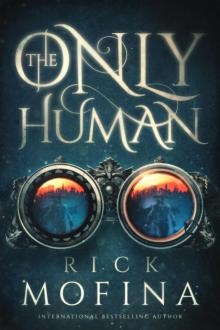 The Only Human
The Only Human Tom Reed Thriller Series
Tom Reed Thriller Series![[Tom Reed and Walt Sydowski 04.0] No Way Back Read online](http://i1.bookreadfree.com/05/tom_reed_and_walt_sydowski_04_0_no_way_back_preview.jpg) [Tom Reed and Walt Sydowski 04.0] No Way Back
[Tom Reed and Walt Sydowski 04.0] No Way Back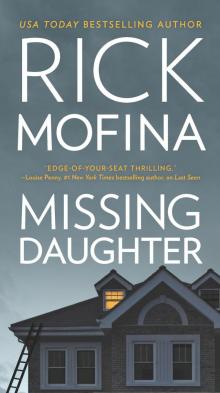 Missing Daughter
Missing Daughter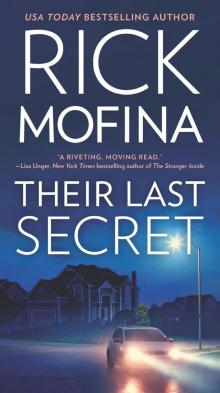 Their Last Secret
Their Last Secret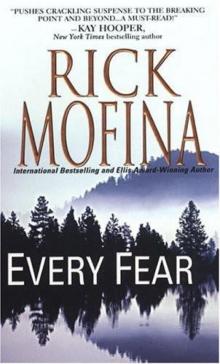 Jason Wade - 02 - Every Fear
Jason Wade - 02 - Every Fear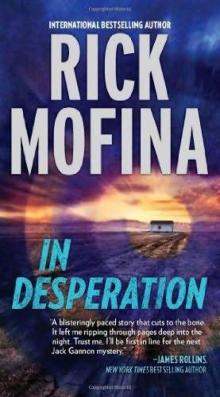 In Desperation
In Desperation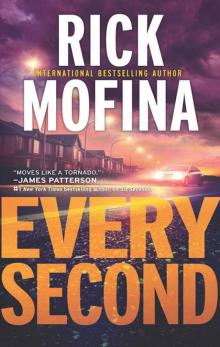 Every Second
Every Second Full Tilt
Full Tilt Search for Her
Search for Her The Last Pursuit
The Last Pursuit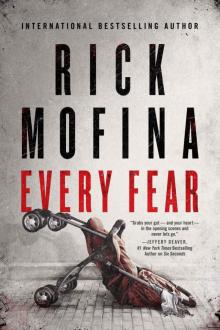 Every Fear
Every Fear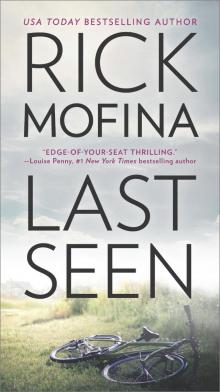 Last Seen
Last Seen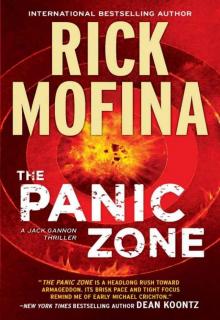 The Panic Zone
The Panic Zone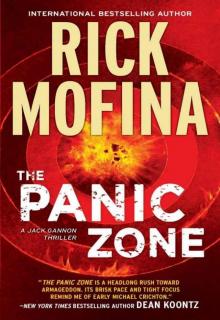 The Panic Zone jg-2
The Panic Zone jg-2 Free Fall
Free Fall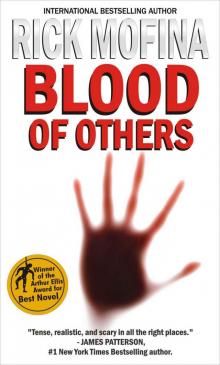 Blood of Others
Blood of Others![[Jason Wade 02.0] Every Fear Read online](http://i1.bookreadfree.com/i1/03/31/jason_wade_02_0_every_fear_preview.jpg) [Jason Wade 02.0] Every Fear
[Jason Wade 02.0] Every Fear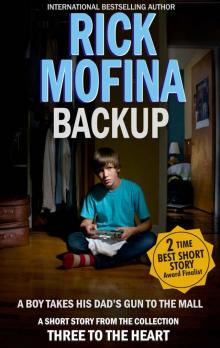 Backup
Backup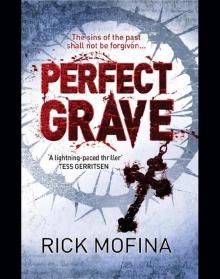 Perfect Grave
Perfect Grave Into the Dark
Into the Dark Whirlwind
Whirlwind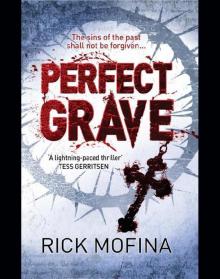 Perfect Grave jw-3
Perfect Grave jw-3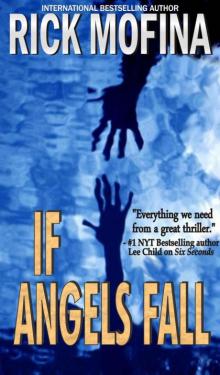 If Angels Fall (tom reed and walt sydowski)
If Angels Fall (tom reed and walt sydowski)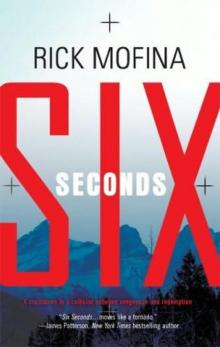 Six Seconds
Six Seconds If Angels Fall
If Angels Fall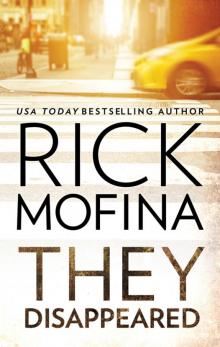 They Disappeared
They Disappeared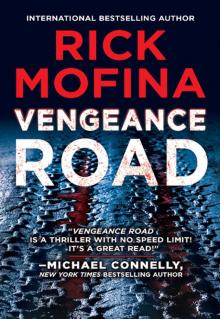 Vengeance Road
Vengeance Road Before Sunrise
Before Sunrise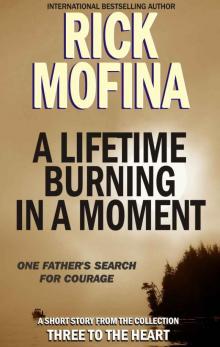 A Lifetime Burning in a Moment
A Lifetime Burning in a Moment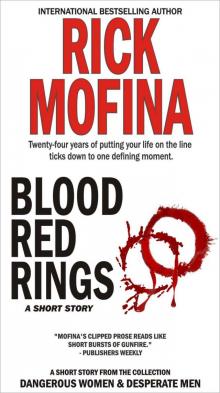 Blood Red Rings (Dangerous Women & Desperate Men)
Blood Red Rings (Dangerous Women & Desperate Men) As Long As We Both Shall Live (Dangerous Women & Desperate Men)
As Long As We Both Shall Live (Dangerous Women & Desperate Men)![[Tom Reed and Walt Sydowski 01.0] If Angels Fall Read online](http://i1.bookreadfree.com/i2/04/12/tom_reed_and_walt_sydowski_01_0_if_angels_fall_preview.jpg) [Tom Reed and Walt Sydowski 01.0] If Angels Fall
[Tom Reed and Walt Sydowski 01.0] If Angels Fall Cold Fear
Cold Fear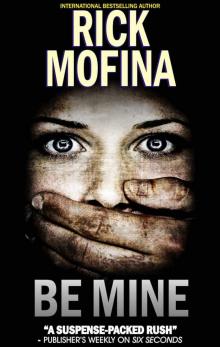 Be Mine
Be Mine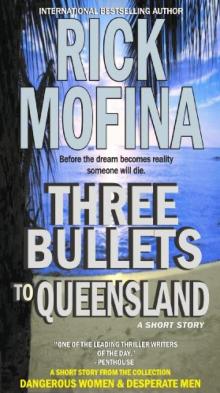 Three Bullets To Queensland
Three Bullets To Queensland